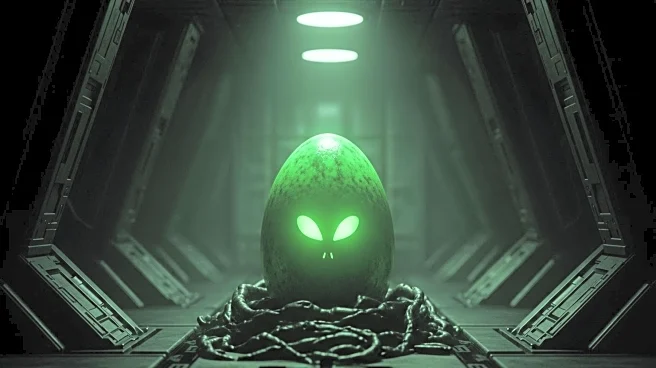What is the story about?
What's Happening?
The TV series Alien: Earth, developed by Noah Hawley for FX and Hulu, is revisiting themes from the 1997 film Alien: Resurrection. The series, set hundreds of years before the events of Resurrection, explores the concept of a spaceship carrying xenomorphs crash-landing on Earth, a plot point that was left unresolved in Resurrection. Alien: Earth is giving new life to ideas from Resurrection, such as the communication between humans and xenomorphs, and the blending of human and alien DNA. The series has sparked discussions among fans about the potential revival of themes from one of the most criticized films in the Alien franchise.
Why It's Important?
Alien: Earth’s approach to revisiting themes from Alien: Resurrection is significant as it may alter perceptions of the original film, which received mixed reviews and poor box office returns. By successfully integrating these themes into a new narrative, the series could rejuvenate interest in the franchise and potentially lead to a reevaluation of Resurrection’s contributions. This development highlights the importance of execution in storytelling, as Hawley’s clear vision contrasts with the criticized execution of Resurrection, offering a fresh perspective on the franchise’s legacy.
What's Next?
As Alien: Earth continues to explore its narrative, it may influence future projects within the Alien franchise. The series could pave the way for new interpretations of existing themes, encouraging creators to revisit and expand upon ideas from previous installments. The success of Alien: Earth might also inspire other franchises to reconsider how they approach legacy content, potentially leading to more innovative storytelling in the industry.
Beyond the Headlines
The revival of themes from Alien: Resurrection in Alien: Earth raises questions about the ethical implications of blending human and alien DNA, a concept central to both the series and the film. This exploration of identity and humanity’s relationship with alien life forms could lead to deeper discussions about the boundaries of scientific experimentation and the moral considerations involved.

















